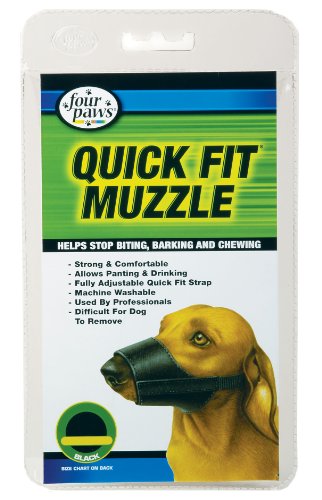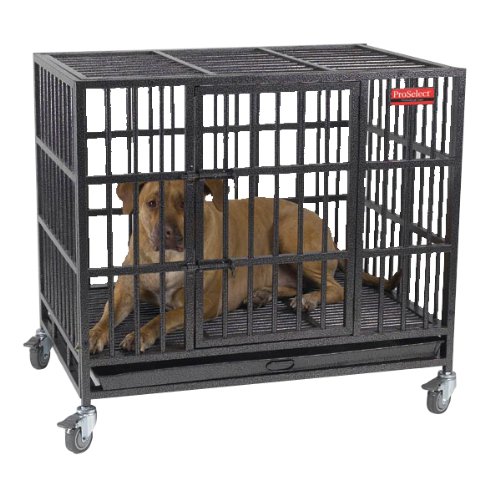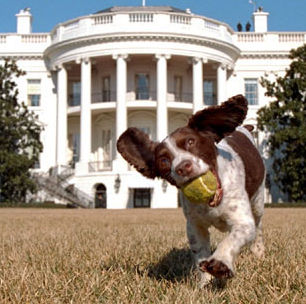Calling All Dog Lovers
If you're reading this article there's pretty much a 100% chance that either 1) you love dogs, 2) you own a dog, or 3) you did own a dog. However, it's also very likely that you aren't aware of at least a few things on the list I'm about to create.
This is my top 10 things that every dog lover/owner should know. These aren't in any particular order.
- Gr
 eeting. What is the first thing you do when you greet a dog? Be honest. You likely make some high pitched noise or kissing sound, as you approach the dog head on, reach out your hand, make eye contact, and pet the dog on the head. We all do it. So what's the problem? The problem is the sequence of greeting is completely unnatural for a dog. When dogs are born, they are born with their eyes shut and ear canals closed. The only connection they have with their mother or litter mates is through touch and smell. This is why when a dog greets you the very first thing they do is sniff your leg. Around 7 days old, the dog will then begin to open its eyes, and not until around 10-14 days will their ear canals be fully developed. So, next time you greet a dog think about this. Let them establish your scent first, hold your hand down in front of them to establish touch second, make eye contact third, and speak fourth.
eeting. What is the first thing you do when you greet a dog? Be honest. You likely make some high pitched noise or kissing sound, as you approach the dog head on, reach out your hand, make eye contact, and pet the dog on the head. We all do it. So what's the problem? The problem is the sequence of greeting is completely unnatural for a dog. When dogs are born, they are born with their eyes shut and ear canals closed. The only connection they have with their mother or litter mates is through touch and smell. This is why when a dog greets you the very first thing they do is sniff your leg. Around 7 days old, the dog will then begin to open its eyes, and not until around 10-14 days will their ear canals be fully developed. So, next time you greet a dog think about this. Let them establish your scent first, hold your hand down in front of them to establish touch second, make eye contact third, and speak fourth.
- Discipline. Most people have a very odd concept of discipline when it comes to dogs. I want to exchange the word discipline for survival, because when you are training a dog, you are training them to survive. Although most dogs are domesticated, you are still placing them in an environment that is not completely natural to them. So, when you are teaching them to sit, stay, heel, beg, whatever it may be, always consider survival. The dog must know that they are not learning to heel just because it helps the owner walk easier, they are learning to heel because they must. If they don't they may run out into the street and get hit by a car. They are learning to sit because they must. It will be more natural for a dog to learn something on these terms.
- Potty training. You may laugh when you read this, but you'll thank me. Do not teach your dog to use the bathroom by walking him/her. Potty training a puppy should be done completely separate from training them to walk on a leash. Once you allow them to associate walking with peeing, they'll always want to walk first. Imagine if it's snowing or raining or just freezing cold outside. Train them from the beginning to immediately use the bathroom before the walk.
- Schedule. Dogs are creatures of habit. They learn by consistency. Training should be at 5pm, dinner at 6pm, walk at 7pm, bathroom before bed at 8pm or whatever time it may be, and those times should never change (if you can help it). This is very healthy for a dog to be consistent.
- Socialization with dogs. Normally socialization is taught by the mother from around 6 weeks to 12 weeks. If you happened to get your dog before that then you'll need to work on socialization with other dogs as soon as possible.
- Socialization with humans. Refer to #1. When people come over, have them greet your dog appropriately. It will go a long way to preventing them from reacting inappropriately, such as barking.
- Socialization with environment. Once a dogs ear canals are open you will notice (if you are a breeder) that the mother dog will begin to work on vocal reactions with her pups. They will recognize what sounds are happy, sad, angry, etc. One type of bark will mean one thing, another something else. When you bring your dog home they need the same type of training to continue. Introduce them to the sounds the refrigerator or washing machine makes. Drop pots or pans on the ground and let them know its ok. Otherwise you're going to end up with the dog that barks at the vacuum or hides when the dryer comes on.
- Crate train and board your dog at an early age. Lots of you will claim you'll never need to crate your dog or board them. But, I promise you it's going to happen. Emergencies happen. If your dog is not used to this, you'll be putting them in a situation that potentially frightens them.
- The dog is in the details. Dogs do not see particularly well. Nor do they speak English. So how do they know what to do and how to react. They pay attention to very specific details. The posture of your shoulders when you approach, the inflection in your voice when you speak, the gait of your walk, the rhythm of your breath. It is never ending. Understand this and you will begin to understand your dog better.
- Learn from your dog. Dogs, like a lot of animals, live in the moment. They wake up and eat and that is the happiest moment in their life. Then you take them for a walk and that is the happiest moment in their life. Then you play ball or watch television and that is the happiest moment in their life. If you do all of #1 thru #9 wrong, get this one right. Learn to live in the moment.
Well I hope you enjoyed my top 10 list. Feel free to leave your own tip and we can make it a top 11 or 12 or 100!

 eeting. What is the first thing you do when you greet a dog? Be honest. You likely make some high pitched noise or kissing sound, as you approach the dog head on, reach out your hand, make eye contact, and pet the dog on the head. We all do it. So what's the problem? The problem is the sequence of greeting is completely unnatural for a dog. When dogs are born, they are born with their eyes shut and ear canals closed. The only connection they have with their mother or litter mates is through touch and smell. This is why when a dog greets you the very first thing they do is sniff your leg. Around 7 days old, the dog will then begin to open its eyes, and not until around 10-14 days will their ear canals be fully developed. So, next time you greet a dog think about this. Let them establish your scent first, hold your hand down in front of them to establish touch second, make eye contact third, and speak fourth.
eeting. What is the first thing you do when you greet a dog? Be honest. You likely make some high pitched noise or kissing sound, as you approach the dog head on, reach out your hand, make eye contact, and pet the dog on the head. We all do it. So what's the problem? The problem is the sequence of greeting is completely unnatural for a dog. When dogs are born, they are born with their eyes shut and ear canals closed. The only connection they have with their mother or litter mates is through touch and smell. This is why when a dog greets you the very first thing they do is sniff your leg. Around 7 days old, the dog will then begin to open its eyes, and not until around 10-14 days will their ear canals be fully developed. So, next time you greet a dog think about this. Let them establish your scent first, hold your hand down in front of them to establish touch second, make eye contact third, and speak fourth.  The Evolution of Dogs: 5 critical steps in the evolution of the modern dog
5 Critical Steps in the Evolution of Dogs
The history of o
The Evolution of Dogs: 5 critical steps in the evolution of the modern dog
5 Critical Steps in the Evolution of Dogs
The history of o
 A Guide to Protecting Your Vicious Breed
Credit: Pitbull by ArielleJay, Rottweiler &am
A Guide to Protecting Your Vicious Breed
Credit: Pitbull by ArielleJay, Rottweiler &am
 Pro Select Empire Cages
Crate training a dog is a go
Pro Select Empire Cages
Crate training a dog is a go
 How to Pick the Perfect Dog Name
What would you call this animal?
Cred
How to Pick the Perfect Dog Name
What would you call this animal?
Cred
 President Dogs: The 20 Most Recent Presidential Pooches (& Other Pets)
20 Most Recent Presidential Pooches (& Other Pets)
They
President Dogs: The 20 Most Recent Presidential Pooches (& Other Pets)
20 Most Recent Presidential Pooches (& Other Pets)
They